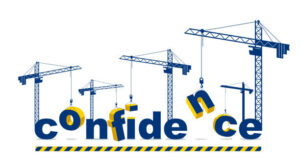How to Overcome Self-Consciousness
Overcoming self-consciousness means having a positive outlook on life. This includes thinking curious and generous thoughts toward other people. It also involves not comparing yourself to others. While this may be easier said than done, it’s an important part of overcoming self-consciousness.
Building confidence
When you are feeling self-conscious, the first step is to identify what’s causing it. For instance, are you afraid to speak in public because you feel like people will notice or judge you? Think about how people perceive you and write down solutions to those problems. You may even find ways to turn your self-consciousness into an asset.
Another solution is to make small changes in your behavior. This will help you to be less self-conscious and more comfortable in public situations. Self-consciousness can stop you from trying new things and limiting yourself to situations that you’re uncertain of succeeding in. The key is to start making small changes and remember that it’s not a quick fix.
By embracing your strengths and engaging in activities and tasks that require these strengths, you’ll build your self-confidence. You may even want to try a worksheet that instructs you to circle your strengths and think about how you use them in different areas of your life. As you find your strengths, use them more often.
In addition to letting go of your negative self-talk, you may also need to make changes to your daily routine. For example, you may feel that people are looking at you constantly, but most people pay less attention to us than we think. It is a good idea to schedule a few sessions with a therapist to learn how to deal with self-consciousness.
Self-consciousness is a serious problem that can make you feel less than you are. It can make you feel like you’re always being watched, and it can lead to a feeling of inferiority. It’s important to recognize that self-consciousness is a self-imposed state of mind, so you can control your thoughts.
Facing fears
The first step in overcoming self-consciousness is facing your fears. Your body reacts to fear as a warning system to be careful. Fears are also called anxiety. They are the result of worrying about what will happen in the future. Fortunately, there are ways to combat this type of fear.
One method to combat anxiety is to write about your fear in a journal. This will allow you to observe patterns and learn what makes you feel fearful. Then you can begin to work on reducing your fear rating. You can even use a pain scale to assess your fear. Taking the time to write down your fears will allow you to understand them better. This can be a great help for overcoming anxiety.
Another helpful method is to practice mindfulness. This passive activity involves concentrating on your breathing. By becoming aware of your thoughts, you will stop responding to them in a negative way. You can then start to think about how you’ll react in a certain situation and work towards conquering your anxiety.
When faced with self-consciousness, it’s important to remember that people pay less attention to us than we give them credit for. This means that we can work on improving our habits and developing a positive self-talk. By making small changes to our everyday habits, we can overcome our anxiety and improve our self-esteem.
Recognizing your strengths
Recognizing your strengths can make a big difference in your life. Using your strengths to achieve your goals will help you to feel more confident and more effective. To identify your strengths, you need to look beyond your skills and evaluate your motivations. Here are some tips to help you identify your strengths.
Develop self-awareness by identifying your strengths and weaknesses. This will help you to maximize your strengths and cope with your weaknesses. For example, if you’re good at seeing the big picture, it’s a good idea to consult with detail-oriented people when making major decisions. This can help you come up with the best decisions.
Another helpful way to overcome self-consciousness is by recognizing your strengths. If you don’t have a list, make one. It doesn’t have to be long, but it needs to be detailed and accurate. Make a list of accomplishments. By looking at it each day, you’ll start to feel less self-conscious.
Self-consciousness can prevent you from fully experiencing life. Instead of letting your feelings control your life, try a new activity or task. By challenging yourself, you can boost your self-esteem. This is a great way to overcome your self-consciousness and improve your overall self-worth.
Stopping comparing yourself to others
If you’re suffering from self-consciousness, stopping comparing yourself to others can help. When you constantly compare yourself to others, you may develop the belief that you’re inferior and that you’re not good enough. This can be very harmful to your self-esteem. It can also lead you to think that other people have it all together, and to treat life like a competition. Instead of comparing yourself to others, you should be comparing yourself to their achievements and unique qualities, rather than to yourself.
If social media is keeping you down, you may want to unfollow those accounts that constantly compare you to others. You may also want to set a time limit for checking social media, so you don’t feel the need to answer every message. You may also want to consider other things you could do with your time instead, like reading a book or calling a friend. Remember, everyone struggles with their own problems, so it’s not possible to compare yourself to everyone.
Despite the fact that self-comparison is a normal behavior, it’s unhealthy to be constantly comparing yourself to others. This kind of thinking can become addictive. It’s easy to feel insecure about your appearance or performance, and will lead to negative thinking. Also, most of these comparisons aren’t accurate. For one thing, people’s appearances can be over-exaggerated, and their pictures may be photo-shopped.
By making yourself aware of how you behave, you’re improving your self-talk and improving your psyche. To stop comparing yourself to others, start by limiting your social media usage, practicing gratitude, and celebrating others’ achievements. These activities will help you retrain your brain and stop negative thoughts.
Avoiding childhood trauma
A child with a complex history of childhood trauma may experience difficulty thinking, reasoning, problem-solving, and regulating their emotions. They may experience significant depression, anxiety, and anger. They may struggle to control their emotions and react inappropriately when they are reminded of the traumatic event. They may also have difficulty maintaining attention and curiosity.
Research suggests that childhood trauma can contribute to negative feelings of self-consciousness throughout a person’s life. These experiences can cause a person to believe that others are thinking negatively of them. Other mental health conditions can also cause this feeling, such as depression, social anxiety, and other conditions that affect self-esteem.
While putting childhood trauma into perspective can feel like an insult to the trauma survivor, it is important to acknowledge that developmental trauma is difficult to identify and may evoke difficult feelings. This is because it makes the inner world a chaotic and uncomfortable place. Often, it is a result of an intense fear or anxiety that triggers an intense need to protect or escape. This makes it difficult for the individual to learn to care for himself or herself.
Childhood trauma is also known to impair protective self-cognitions, which is the ability to make and maintain decisions. This means that the person’s ability to engage in resource-building or resource-investment tasks is diminished. As a result, it may be difficult to build a strong resource network.













